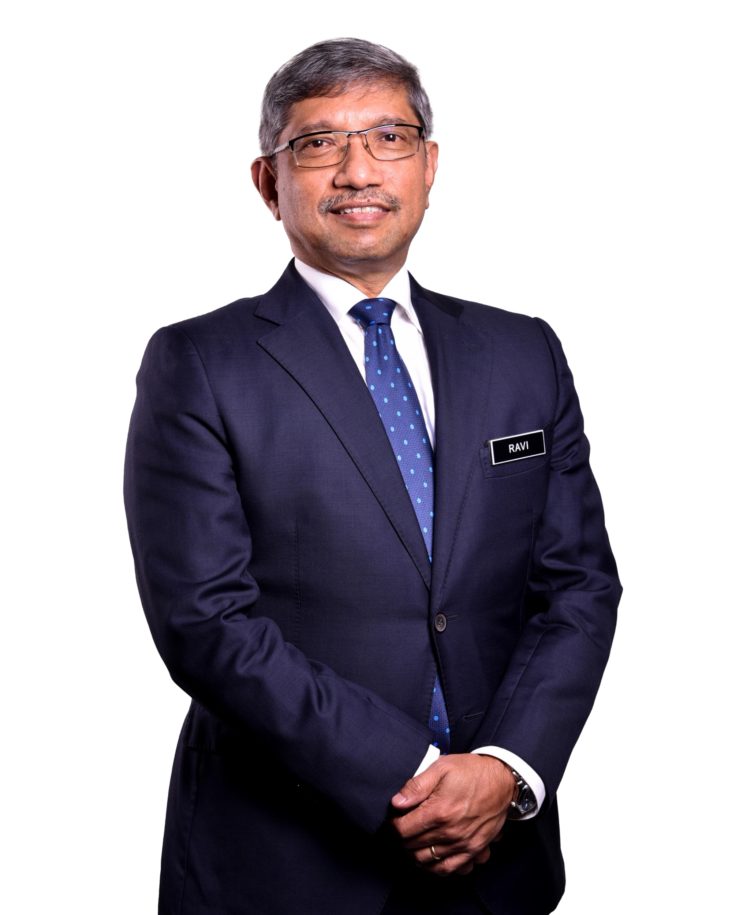Expo 2020 Dubai A Perfect Platform For Malaysia To Raise Awarness On Its Sustainable Agricommodities And Target Mena Market

Expo 2020 Dubai was timely and opportune for Malaysia to promote its palm oil industry and highlight the importance of the agricommodity to the global community, says Ministry of Plantation Industries and Commodities (MPIC) secretary-general Datuk Ravi Muthayah.
“The expo is a magnificent platform for the global communities to gather, learn and exchange ideas on our shared aspiration on sustainability,” he said in an interview.
Ravi said the concept of sustainable agricommodity provides a strong platform for Malaysia to expand the global market for palm oil exports.
“As Malaysia’s main agricommodity export, palm oil has contributed significantly in providing a continuous inflow of earnings through the export of raw commodities and value-added products.
“This sector has also played an important role in helping our country to sail through the rough economic climate brought by the global pandemic,” he said.
As platinum premier sponsor of the Malaysia Pavilion at the six-month global event that ended 31 March 2022, MPIC had a permanent interactive exhibition area showcasing Malaysia’s sustainable agricommodities of palm oil, rubber,pepper,cocoa, timber, kenaf and gaharu.
Ravi’s visitwas part of the Ministry’s continuous promotional and economic mission to the Middle East to promote Malaysia’s agricommodities and explore market potentials and collaboration, where he also attended the Global Business Forum LATAM 2022 and a joint programme with Mexico Pavilion.
On whether the MPIC-led programmes during the expo have achieved outcomes in increasing palm oil sales, Ravi said in 2021, Malaysia’s palm oil exported 134,772 MT (metric ton) to UAE, which showed an increase by 31.93% compared to year 2020 (102,158 MT).
In 2021, the Middle Eastern region imported 2.34 million tonnes of Malaysian palm oil, which is an increase of 8.2% as compared to the same period in 2020. UAE took up 10% of the total palm oil and palm oil products exported to this region, valued at USD192 million.
He said countries like Turkey, Iran and the UAE accounted for 84% of the total Malaysian palm oil exports to the Middle Eastern region.
The MPIC secretary-general elaborated that as a major hub in the Middle East, the UAE has always been Malaysia’s largest export destination and second-largest source of import in this region, serving as a gateway for Malaysia to penetrate new markets in the wider region.
“The UAE palm oil market itself is currently the fourth largest importer of palm oil in the Arab world and is expected to reach USD467.1 million by 2025, according to a new report by Grand View Research Inc.
“We are confident the business partnerships forged during the expo will open more doors for Malaysia’s palm oil and palm oil-based products to a bigger market in this country,” he said.
The estimated export value of palm oil and palm oil products to the Middle East in 2021 was approximately USD2.5 billion.With a population base of over 570 million and consumption of over 14 million MT, the region will continue to be an important export destination.
Ravi believes that the Middle East and North Africa (MENA) market has huge potential for Malaysian agricommodity products.
“With great consumptions and demand for our agricommodity products coupled with strategic location and excellent logistic hubs, MENA region has definitely lots to offer.
“Through our presence at Expo 2020 Dubai we hope to tap the MENA market, as well as, explore and facilitate potential joint ventures and foreign investment from the MENA region,” he added.
On the boycott by European Union (EU) countries of Malaysia’s palm oil in recent years despite the Malaysian Government’s efforts to counter the claims,Ravi explained that debates within the EU over palm oil and biofuel reflect a lack of knowledge and deep understanding about the topic and there isrising concern that the action is driven by an overtly political agenda.
“I would like to reiterate that come what may, Malaysia will continue to fight to promote the positive image of Malaysian agricommodity products, and prove what we can do best in adhering sustainable production and consumption,” he said.
The MPIC secretary-general said oil palm’s average yield of 4 tonnes of oil per hectare per year is four times higher than rapeseed, 5.4 times higher than sunflower and eight times higher than soybean.
“Therefore, to meet the rising demand for oils and fats by 2025, it is estimated that there is a need to harvest an additional 60.7 million hectares of land for rapeseed or 84.2 million hectares for sunflower, 115 million hectares for soybean, compared to a mere 15.2 million hectares if it was provided by palm oil.
“This shows oil palm trees are more efficient at producing oil than temperate oilseed crops,” he pointed out.
Ravialso said Malaysia is committed in its pledge at the 1992 Rio Earth Summit to maintain at least 50% of forest cover and tackle the issue of deforestation and direct or indirect land-use change. Malaysia’s current forest cover is 18.24 million hectares, or 55.3% of its total land area.
“The quick adoption and renewed focus on sustainability in the plantation is the key agenda in re-instilling consumers’ confidence, enhancing brand value and loyalty, boosting productivity, intensifying efficiency, and creating new opportunities in business,” he said.
According to Nielsen’s 2015 Global Corporate Sustainability Report, Ravi said, the market for sustainable goods would continue to expand, and consumers are willing to pay more for sustainable products.
“The Government is committed to providing accurate information and positive messaging about the industry’s best efforts towards sustainability certification and biodiversity conservation strategies,” he said.



